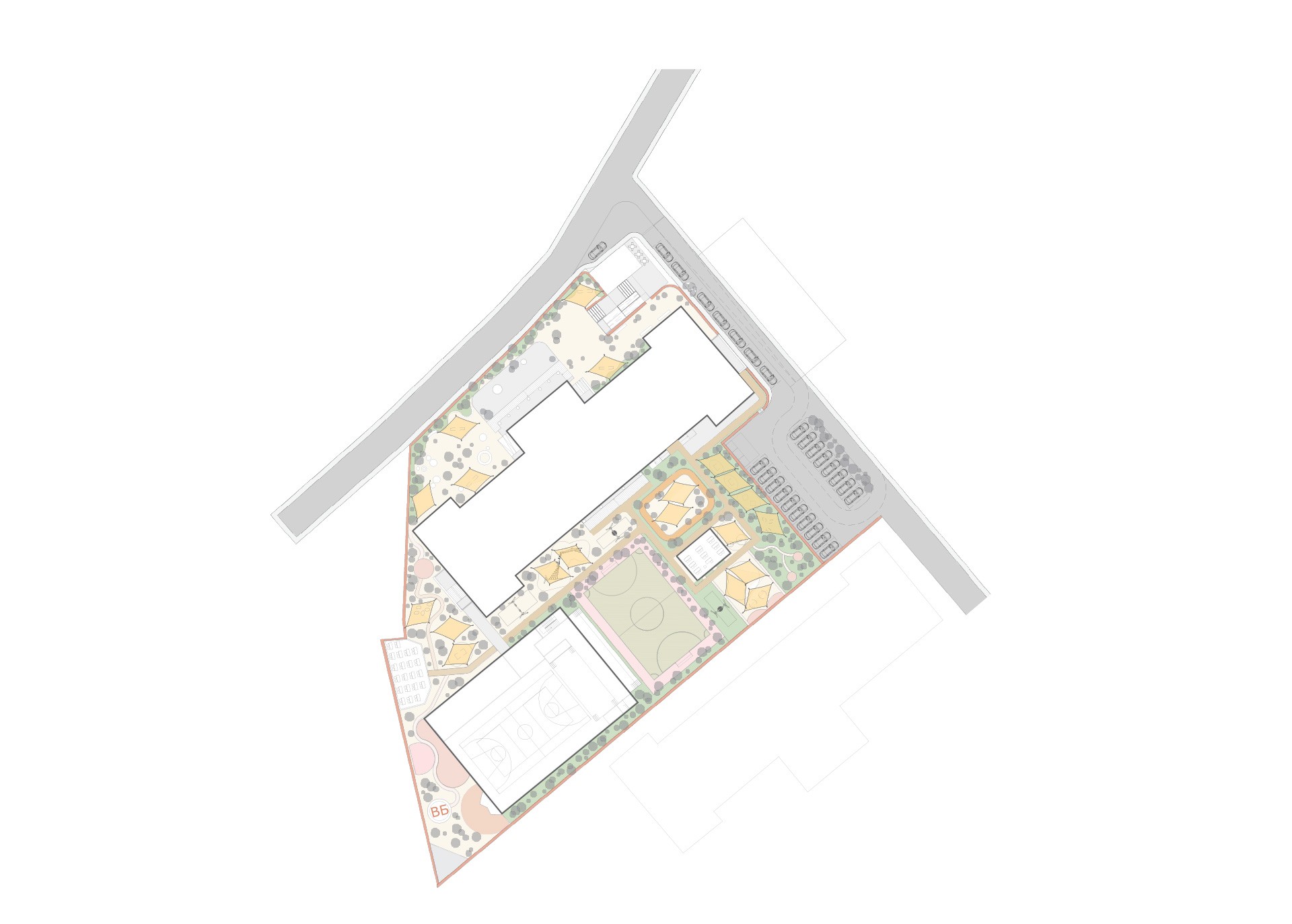Client
TUMO Center for Creative Technologies
Typology
Education, Retail, Landscape
Year
2024
Status
Competition Project
Stage
Concept Design
Size
12,164 m² (including landscaping)
Discipline
Architecture, Technology, Landscaping
Location
Gyumri, Armenia
In the summer of 2024, NF Architecture Studio took part in a competition to design a new culinary ecosystem in Gyumri, the cultural capital of Armenia. The initiative came from the TUMO Center for Creative Technologies, a free educational platform specializing in technology and design.
The challenge was to transform the site of a historic market in the city center into a multifunctional gastronomic complex that would include a culinary school, restaurants, shops, a gourmet market, a public square for events, and parking facilities.

The project embraces the architectural heritage of Gyumri: parts of the old market ruins are incorporated into the new school’s facade. The existing market on the southern edge of the site is preserved and partially relocated into new spaces with a unified design for stalls and canopies. The image of fabric canopies, traditional for the region, inspired the architectural concept for the entire complex.

The central square of the site is set on a diagonal, linking Shaumyan and Mayakovsky streets. All key components, the market, school, restaurants, and shops, are oriented toward this square, creating a vibrant urban space.

The ground level includes a covered market, cafés, restaurants, and retail spaces that form an active street frontage. It also features a semi-enclosed parking area with three access points and designated loading zones. The arched structures of the old market are integrated into the two-story culinary school building facing Shaumyan Street. In front of the school is a square with an amphitheater, which functions as a dry fountain and children’s play area by day and as a venue for open-air cinema and public events in the evening.
The second level is dedicated to restaurants, shops with terraces, and flexible market areas. Up to 50% of the open-air market can be converted into an enclosed space. All buildings include roof-level infrastructure zones to house technical systems, preserving the clean lines of the facades.

Currently, pedestrian routes bypass the market area. The project proposes a convenient pedestrian route through the site, improving urban connectivity and enhancing both the commercial and public potential of the space. Four access points are provided, including connections with public transit stops.
Vehicle access is organized through three entry/exit points: two can be implemented immediately, while the third will follow the partial demolition of a ruined building. This setup helps distribute traffic and reduce congestion.
Three loading zones are planned:
A private, covered zone at the rear of the culinary school
A zone in the parking area for the northern section of the market and adjacent shops
A separate, covered zone on the southeast side for the southern market section
TUMO’s mission is to deliver life-changing educational experiences on a large scale.
TUMO, International School of Creative Technologies

The project is based on ecological and cost-efficient principles. All roofs will be equipped with solar panels. Buildings are oriented at angles to reduce thermal load; roofs are extended, and facades are layered for added insulation. Both interior and exterior columns are designed to collect rainwater and serve as elements of the infrastructure system.
The building framework follows a modular design using metal facades and columns — a strategy that reduces costs and accelerates construction.

An efficient waste management system is also incorporated:
Waste separation (organic, recyclable, general, batteries, light bulbs)
Bins placed throughout the site within walking distance
Use of recycled plastic materials
Centralized temporary waste storage area
Organic waste will be stored in refrigerated units to prevent odor
The Culinary School project in Gyumri is not just about food, it is a cultural initiative that redefines the role of public space.





